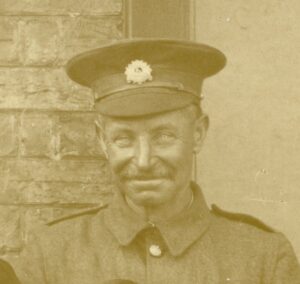Horace William Cordery St. George Asher (1888 - 1925)
Horace enlisted with 1st Battalion, Devonshire Regiment, Private 63778; probably being mobilised after 1916. Horace had been promoted to Company Quartermaster Sergeant by 1917.
In the summer of 1917, Horace was hospitalised with bronchitis and pneumonia. He continued to serve, coming home on leave in August 1918; however, it seems that he never fully recovered from his illness and was discharged from the army in February 1919, returning to Church Street, Long Bennington. After the war he was awarded the British War Medal and the Victory Medal.

Alfred William Denham (1897 - 1916)
Alfred was born in 1897 in Nottingham, the son of William and Sarah Ann Denham. Before he enlisted, Alfred was working as an Errand Boy.
He entered the theatre of war on 21st February 1915, serving as Private 265256 with 1st/7th Battalion, Sherwood Foresters (Notts and Derby) Regiment.
Alfred died on 1st July 1916 - the same day as his distant cousin John Denham Wynn, also of the Sherwood Foresters and is commemorated on the Thiepval Memorial.
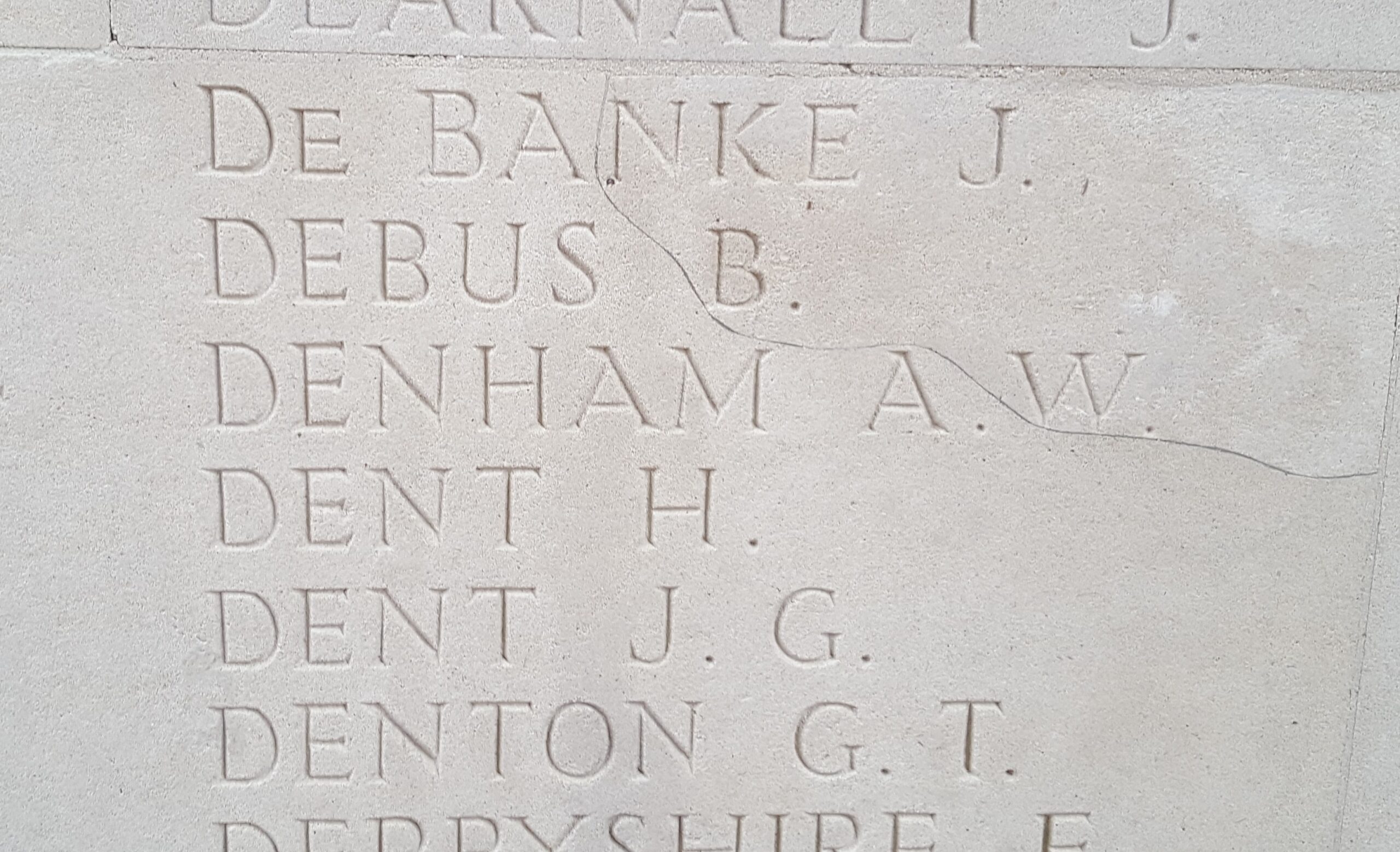
George Dolby (1891 – 1971)
Private 1992, 2/1st Battalion, Lincolnshire Yeomanry enlisting sometime during November 1914. The Battalion was formed in September 1914 as the reserve battalion for 1/1st Battalion of the Lincolnshire Yeomanry, supplying it with newly trained soldiers. During 1916 and 1917 the Battalion was at times a cyclist battalion but reverted to being a mounted unit. It didn't serve overseas.
George was discharged on 28th June 1919 and was awarded a pension due to a heart problem frequently listed as ‘D.A.H.’, attributed to his service.
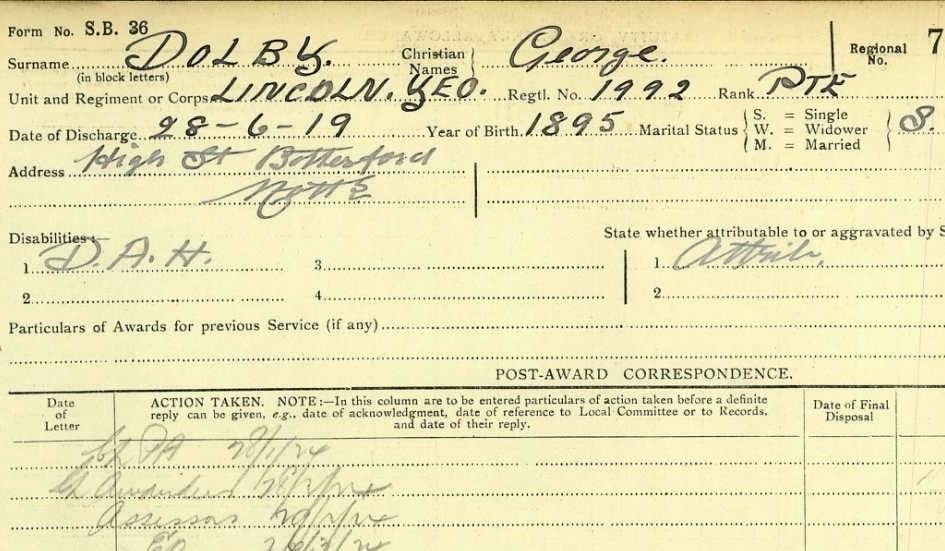
John Doughty (1885 - 1917)
John served initially with the Lincolnshire Regiment as Private 5069, probably in 1916 but later transferred to the 2nd Battalion of the Royal Warwickshire Regiment, Private 27089. He was accidentally injured on 30th May 1917 while undertaking his duties as a member of the Salvage Corps; he had been helping to move ammunition when a bomb slipped and it exploded when it fell to the ground.
John was taken to the 44th Casualty Clearing Station at Colincamps, and died in the early hours of the following morning. He was buried at Euston Road Cemetery.
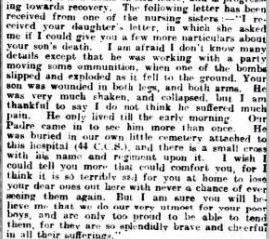
George William Dring (1888 - 1967)
George worked for the Ilfracombe Electric Light Company; in October 1917 this company applied for George to be granted a temporary exemption from military service which was granted until January 1918. George enlisted with the RAF as Air Mechanic Class 3 188159 on 23rd May 1918 and was in France by 15th June 1918. On 2nd April 1919 he was posted to Rouen and on 1st June of the same year he was reclassified Air Mechanic Class 1.
On 19th October 1919 George was posted back to the Home Establishment and transferred to G Class George was awarded the British War Medal and the Victory Medal.
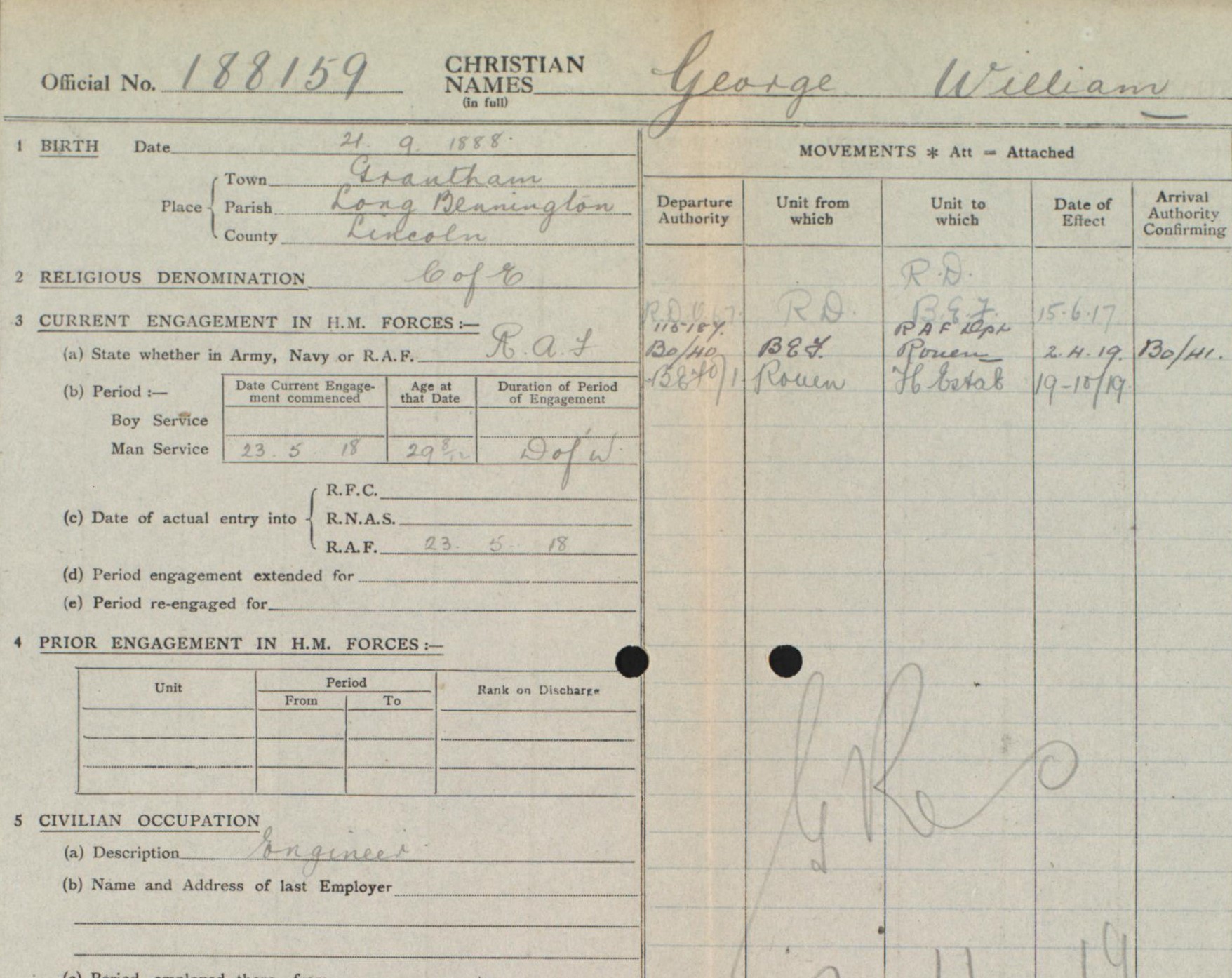
Ernest Gilbertson (1897 - 1932)
Ernest appears to have enlisted for the Sherwood Foresters (Notts & Derby) Regiment, Private 127203 but the only documentation that still exists are two pension index cards.
Ernest was discharged from the army on 13th November 1919. The pension index cards show that by the time he was discharged, Ernest was suffering with heart disease which was deemed attributable to his war service and he was awarded a pension which may have only been paid for a limited period, however.
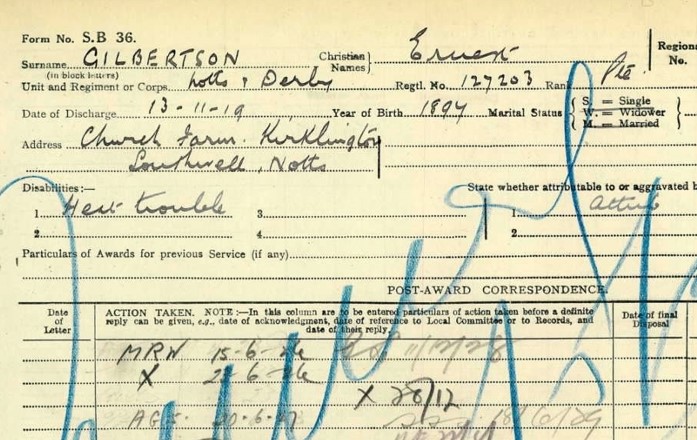
Ernest Hubbard (1889 - 1973)
Ernest was posted to the North Staffordshire Regiment, Private 52466. The Grantham Journal reports on 10th August 1918 that Ernest was home on leave, it is more likely that this was from a UK military camp rather than from active service overseas.
Before the end of the war Ernest had been promoted to Acting Corporal which suggests that he may have seen some active service; however, as Ernest was not awarded any medals, he is likely to have been in a theatre of war for less than the 28 days required to have been eligible.
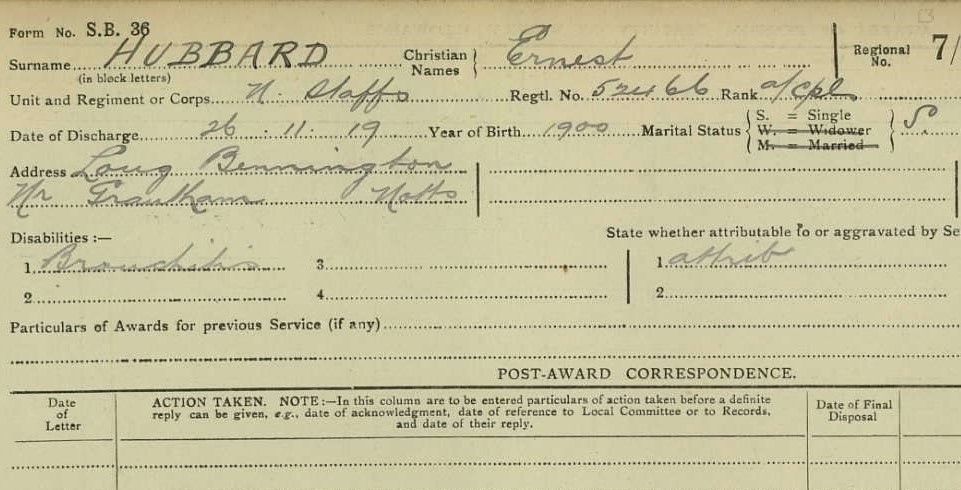
William Henry Hubbard (1895 - 1980)
William enlisted with Bristol Division of the Royal Naval Reserve on 24th June 1916; posted on 15th June 1917 to HMS Patia which was sunk on 13th June 1918 after being torpedoed by German submarine UC-49 in the Bristol Channel, about 25 miles west of Hartland Point; seven of her crew were lost but William survived.
He was promoted to Able Seaman and returned to Portsmouth on 1st July where he remained for just over three weeks before being posted on 25th July 1918 to HMS Renown. HMS Renown was present at the surrender of the German High Seas Fleet at Scapa Flow on 21 November 1918.
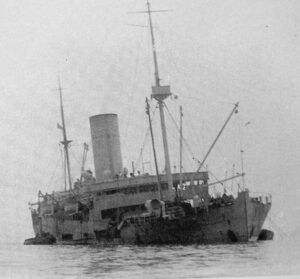
William Hunt (1881 - 1961)
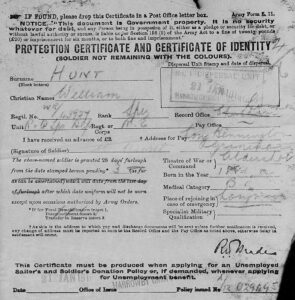
Ernest Johnson (1895 - 1934)
Ernest had enlisted by November 1914 and on 13th of that month was posted to Winchester to join the 11thBattalion of the Rifle Brigade as Private S/5957. This battalion had been formed just two months earlier as part of Kitchener’s Second New Army.
On 8th January 1915 Ernest was admitted to Connaught Hospital in Aldershot with rheumatism; this must have been quite severe as he was discharged from the army on 26th March 1915 due to ill-health.
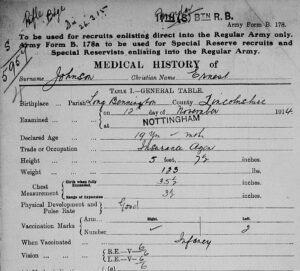
William Johnson (1888 - ?)
William was posted as Sapper 5401 to 2nd Field Company, Canadian Engineers. Wounded in May 1915 and May 1917, William was awarded a Military Medal and bar.
William obtained a commission in August 1918 and at the end of that month he was appointed Temporary Lieutenant. In October 1918 he was posted to 2nd Tramway Company of the Canadian Engineers.
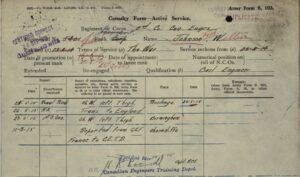
Cecil Kirton (1899 - 1952)
Cecil was deemed to have enlisted on 10th December 1917 and joined 7th Battalion, Sherwood Foresters (Notts & Derby) Regiment later that month as Private 98824. Cecil was transferred to 2/1st Battalion of the Lincolnshire Yeomanry in May 1918. This Battalion was stationed in Canterbury and had converted into a Cyclist Battalion. He transferred to 6th Battalion Lincolnshire Regiment at the end of November 1918, after the end of the war, and sent to France as Private 25079. It is likely that his duties included the supervision of Prisoner of War working parties and in April 1919 he was formally attached to the 216th Prisoner of War Company.
In January 1920 Cecil was posted to the 895th Area Employment Company of the Labour Corps and for a time he was based in Marseilles. Cecil was back in the UK in March 1920 and was posted to the Army Reserve on 7th April.
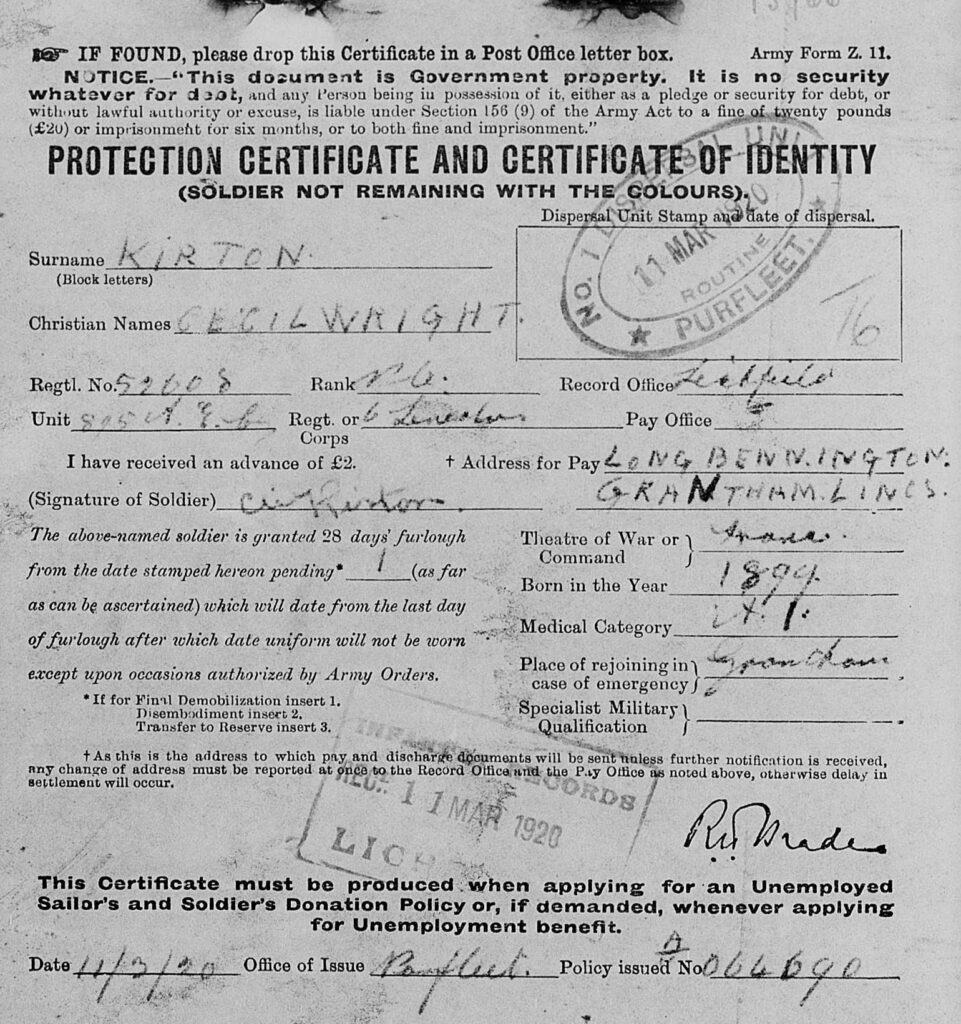
Edward Kirton (1894 - 1971)
Edward enlisted on 12th February 1916. In October 1918 the Grantham Journal reports that Edward was posted to the Training Reserve in January 1917 and did his initial training with the Army Service Corps at Grove Park in Lewisham. Edward was posted to the Cheshire Regiment and then to the Machine Gun Corps.
Edward was badly injured at Nieuport on 5th November 1917. His right leg was so badly damaged by a gunshot wound that several operations were necessary and he was in hospital for about a year. The leg had to be amputated at the knee and he was fitted with an artificial leg.
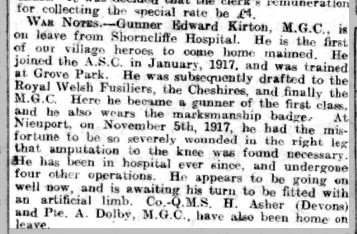
Oscar Sewell Ladbrook (1886 - 1917)
Oscar enlisted with Essex Regiment, serving with 3rd Battalion and was promoted to Lance Corporal, his regimental number was 35943. He was transferred to 16th Battalion, Welch Regiment and was promoted to Corporal, Regimental Number 54887.
Oscar was killed in action in Belgium on 22nd August 1917. He is commemorated on the Tyne Cot Memorial.
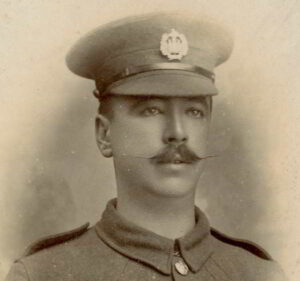
Geoffrey Thomas Parnell (1899 - 1980)
Geoffrey was born in Radford, Nottingham, the elder son of Thomas and Mary Parnham. In August 1917, just after his eighteenth birthday, he enlisted with the Durham Light Infantry, serving as Private 118339 with 51st Battalion. In May 1918 he was transferred as a pilot cadet to the new formed Royal Air Force.
After the war he returned to Nottingham and married in 1923. By 1939 he was living and working in Hampshire and died in 1980 in the district of Southampton.
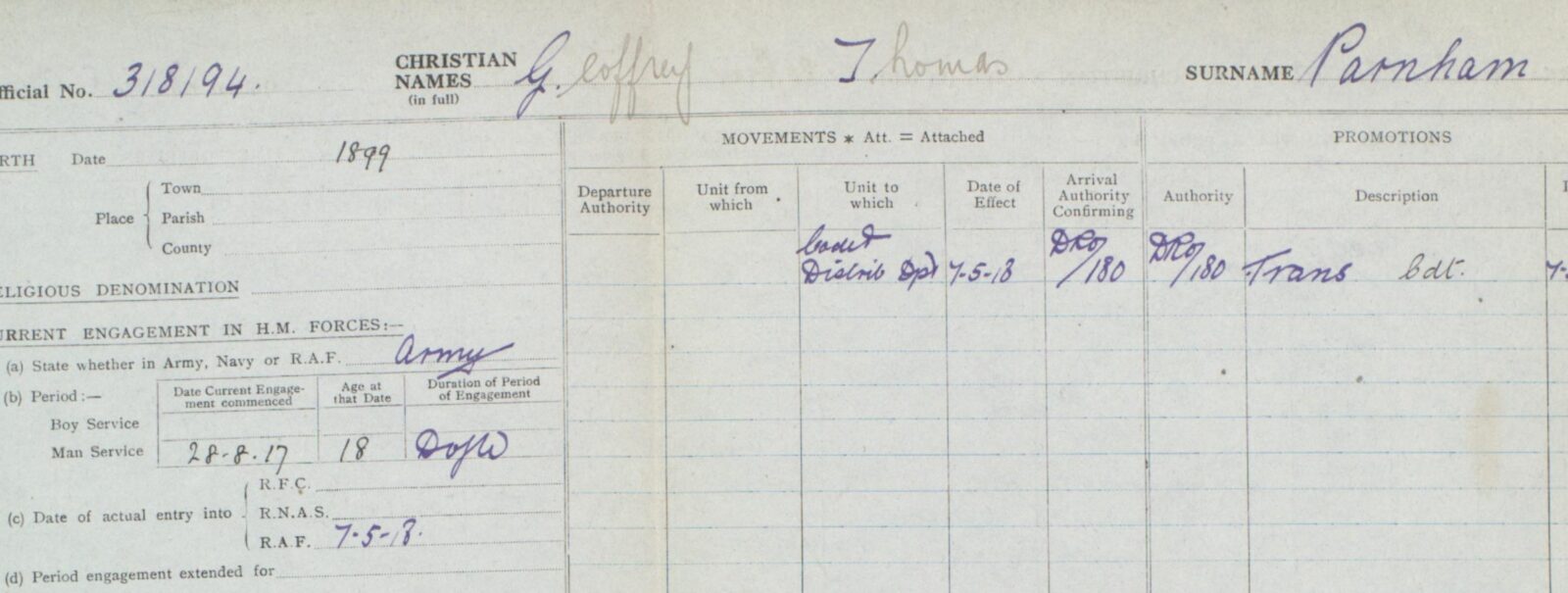
Percy SMITH (1897 - 1978)
Percy enlisted on 29th August 1914, joining 4th Battalion, Essex Regiment before being posted to France in September 1916 as part of 2nd Battalion, he was Private 40339.
Percy transferred to 11th Battalion, Royal Fusiliers (City of London Regiment) in October 1916, his service number changing to GS/ 60340. On 17th February 1917 he was very badly wounded and was discharged from the army in August of the same year.
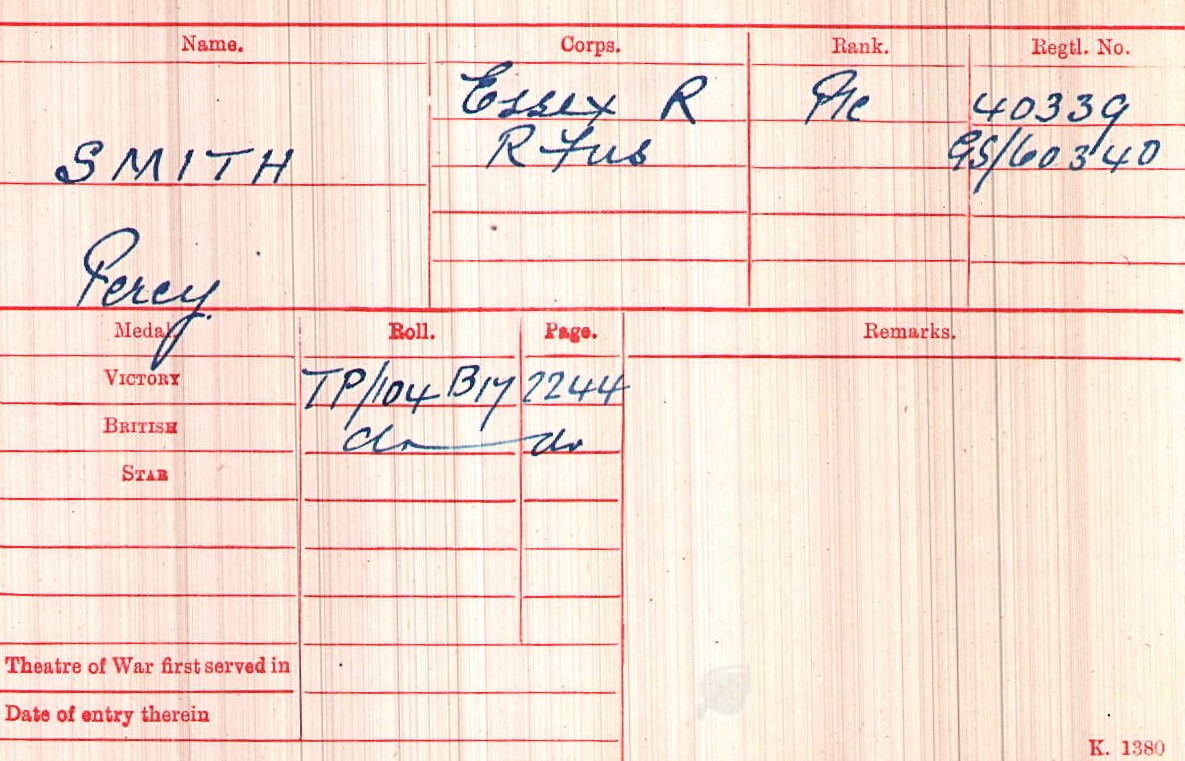
William Leonard SPAIN (1890 – 1915)
Known for much of his life as Leonard William, he was born in High Halden and was working as a groom in 1911.
William enlisted at Guildford, Surrey where he had been working as a barman and was posted as Private G/4749 to 1st Battalion, Royal West Kent Regiment. He arrived in France in March 1915.
William was killed in action on Hill 60 on 18th April 1915 and is commemorated on the Menin Gate, Ypres.

Victor William WAYMARK (1897 – 1917)
Known as William Victor, he had been a member of the Houseboy Brigade in 1911.
William enlisted at Swindon, Wiltshire and was posted as Private 6173 to 7th Battalion, Rifle Brigade. He arrived in France in September 1915.
William was awarded the Military Medal in May 1917. He was wounded at Stirling Castle and died of his wounds at No. 10 CCS, on 27th August 1917. William is buried at Lijssenthoek Military Cemetery.
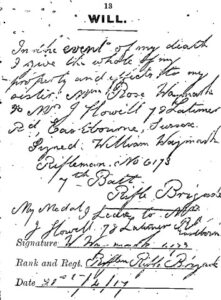
Samuel YERRELL (1866 - 1915)
Samuel enlisted during 1915 for 8th Battalion, Bedfordshire Regiment, Private 19527. Served on Western Front from 30th August 1915.
Samuel died 25th December 1915 at 10th Casualty Clearing Station at Remy Siding between Ypres and Poperinghe and buried at Lijssenthoek Military Cemetery.
